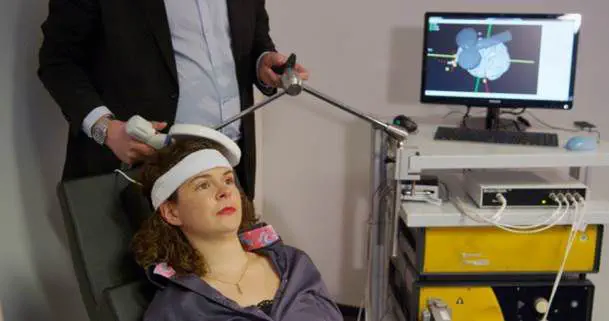Everybody has bad days when they feel out of sorts and unmotivated to do their daily activities. When a sad mood lasts for an extended time, however, it is often a sign of depression. According to the World Health Organization, depression affects an estimated five percent of adults worldwide.
Depression is a broad-spectrum mental disorder with symptoms ranging from mild to severe. People diagnosed as dysthymic (mildly depressed) typically describe a situation in which they can function and complete their daily routines. Still, they are plagued by persistent negative feelings and a general sense of being uninspired.
On the other end of the spectrum are those who suffer from severe clinical depression, who report a constant sense of profound hopelessness, despair, and an inability to enjoy anything (anhedonia). Memory loss and cognitive confusion are also possible.
Then there are those who suffer from seasonal, bipolar, postpartum, and other types of depression who also display many of the symptoms listed above.
What Causes Depression?
The answer to this question has yet to be discovered by medical science. To put it another way, the root cause of depression is still unknown.

Maridav/Shutterstock
However, depression has been linked to environmental, biological, genetic, and psychological factors. The exact way this manifests itself for each individual varies, but in many cases, the following put an individual at risk:
- Excessive drug and alcohol use
- Having blood relatives who have suffered from depression
- Dealing with major life challenges, such as a terminal illness, like cancer
- Experiencing traumatic or stressful events, such as financial difficulties, sexual or physical abuse, the loss of a loved one, and so on
- Side effects from taking certain medications
The list goes on and on. However, because depression manifests differently in each person, the best way to determine if you or someone you know is a sufferer is to consult a qualified medical professional.
Finding the Best Treatment for Depression
Given the prevalence and nature of depression, as well as how it can severely impact an individual’s quality of life, there are currently a plethora of treatment options available. It should, however, be noted that none of these treatments result in a cure for the disorder.
Depression treatment only serves to manage symptoms of the disorder.
Common Treatment Options for Depression
Getting depression treatment is a marathon, not a sprint. It takes self-compassion and patience to find the methods that will help you keep the symptoms at bay.
As previously stated, there are numerous depression treatments available. Determining the best depression treatment for you requires careful consideration of the available options.
Some of the most common depression treatments include medications, therapy, or both.
Most people find that taking antidepressants or undergoing psychotherapy (psychological counseling) relieves their depression symptoms. However, in some cases, patients who receive these treatments do not improve.
This usually indicates that they are suffering from treatment-resistant depression.
What other options are there?
Brain Training for Depression
Brain training involves stimulating the brain to solve problems in its neural pathways and improve its abilities and performance. In other words, unlike other types of depression treatment, brain training treatment focuses on developing a more resilient brain by utilizing the brain’s ability to strengthen and heal itself.

Photo by Alex Ivashenko on Unsplash
The science is straightforward: Studies show that a more resilient brain prevents cognitive decline and stress-related disorders. It has also been demonstrated that it is possible to retrain the brain to regain and improve cognitive function.
Transcranial magnetic stimulation (TMS), electroconvulsive therapy (ECT), and neurofeedback therapy are some of the brain training treatments available.
In this article, we’ll focus our discussion on neurofeedback.
What Is Neurofeedback Therapy?
Neurofeedback therapy is a brain training method developed based on the brain’s neuroplasticity.
It is a scientifically proven method for improving brain function through intensive brain training exercises. This technologically sophisticated process is straightforward as it involves both practice and feedback.
Neurofeedback and the Treatment of Depression
Improving self-regulation in the brain allows you to function better emotionally, cognitively, and behaviorally. As a result, neurofeedback is a valuable tool for anyone seeking to improve and maximize their brain potential and performance.
As a treatment for depression, neurofeedback is used to improve your health, with a particular emphasis on the emotional and mental aspects of your well-being.
Throughout each treatment session, your brain is ‘trained’ to consciously alter its activity using tools such as quantitative electroencephalography or EEG, which display your brain’s responses and patterns in real time.
The Procedure
The neurons in your brain communicate with one another via a structure called a ‘synapse,’ resulting in brain waves (also known as brain activity). Sensors are attached to the scalp to record these waves of the client during a neurofeedback therapy session.
 The ebb and flow of your brain waves are converted into audio and video format and displayed on a screen using special software on a computer.
The ebb and flow of your brain waves are converted into audio and video format and displayed on a screen using special software on a computer.
This in-the-moment feedback is used to train your brain to change its behavior.
Note: The neurofeedback process is non-invasive and completely painless. Furthermore, the location of the sensors on the scalp and the specific frequencies used in each therapy session is tailored to each individual, varying as you progress through your brain training sessions.
Patient Verdict on Neurofeedback Therapy for Depression
Neurofeedback therapy has produced impressive results in the treatment of depression, even in patients with treatment-resistant depression.
Following a 20-session treatment plan, most people who receive neurofeedback training as a treatment for depression report significant improvement. They can strengthen some of their brain connections, experience improved self-esteem, and see a decrease in the severity of their symptoms.
Making the Most of Your Treatment
Recognize that the goal of depression treatment, such as neurofeedback, is to improve your mood. However, if you skip appointments as you start to feel better, you risk triggering the re-emergence of your symptoms and lengthening the timeframe of your treatment.
Remember to look after yourself. Participate in physical activities like gardening, jogging, walking, swimming, or other things you enjoy, eat healthily, and get adequate sleep and plenty of rest.
Who is the author?
 Dr. Upasana Gala is the founder and CEO of Evolve Brain Training, an award-winning neurofeedback-centered institute that focuses on using non-invasive brain training techniques to maximize the brain’s true potential.
Dr. Upasana Gala is the founder and CEO of Evolve Brain Training, an award-winning neurofeedback-centered institute that focuses on using non-invasive brain training techniques to maximize the brain’s true potential.
Earning a doctorate in Neuroscience from the revered Baylor College of Medicine, Dr. Gala has spent over a decade trying to unravel the way neurochemical and neurophysiological changes in the brain affect the way we interact with the world.
Her goal is to share her knowledge, encourage others to tap into and expand their brain’s capabilities, and dispel any myths surrounding our most complex organ.



![women [longevity live]](https://longevitylive.com/wp-content/uploads/2020/01/photo-of-women-walking-down-the-street-1116984-100x100.jpg)











We must be aware of the mental health problem known as depression. When you have this form of mental health condition, it may impact you and others around you. This essay may aid everyone in comprehending and being aware of the major elements of depression.
I appreciate you providing this fantastic and educational article.